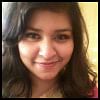From professorship to politics

Why don't we start by talking a little bit about yourself and the work that you have done till now, because not many here in Bangladesh will know who you are and the work you have done.
Well I was born in Suriname, which is the former Dutch Guiana. One of the three Guiana's that are in the north coast of South America and I am from the part in the middle that used to be Dutch. Therefore, I have Dutch nationality. But in the school system I was in, I learnt Dutch, my mother tongue, English, French, and German, but not the languages of my continent, which of course were Spanish and Portuguese.
So when I got to university I decided to learn the languages of my continent by studying modern Spanish-American Literature. I did my Masters' thesis on a Cuban poet named Nicholas Gullien. And at the end of my study, I started to teach because when you learn a language you have to learn a profession, and after studying for six years, you can speak a language but then now you have to do something to earn a living. So some of us became interpreters, and some of us became teachers—I picked the latter.
So, I started to teach and that is how I met my husband. We married in Chile in 1984, and lived there for 7 years, during the dictatorship of Augusto Pinochet. We had the privilege to see how the Chilean population went from this dictatorship to democracy and I am very honoured to have lived through that.
And then we moved to Brazil, where we lived for three years. In these 10 years in Latin America, I had been working with women and children in the poorest parts of the big cities. I worked at the grassroots level with women's and children's groups, where every week I would teach them alphabetisation and how to read and write, and talk about hygiene and health related issues that they were not aware about. And then we got back to the Netherlands with our two sons, our oldest who was born in Chile and our younger who was born in Brazil.
How and why did you eventually decide on leaving politics?
In the Netherlands I was always an exception and people treated me like that. Even though I was not completely black, I was not treated as one of them. So, I consider myself a black woman and being a black woman in the Christian Democratic Party, I was not expected to make any difference. I was treated as if it was okay to be there, but they would not be bothered by me. But that was not why I was in politics and as a result, it was not a reason for me to leave. But I had been through some really trying times. Towards the end, my party decided to collaborate with an ultra-right wing party, which said that Islam is not a religion, but a political theory and ideology. This went against everything I believed in. While this collaboration did not hurt me personally, it did make it tough for me to work.
I could have stayed for four more years in the parliament, but I believe politicians should move and let new blood in. All over the world politicians think that they are irreplaceable but they are not. Politicians should always work knowing that they are replaceable while moving towards making the most constructive changes in their countries. It was with this thought that I eventually left my position.
During some of our private conversations, you have often talked about how your experiences here in South Asia are so vastly different from you time in Suriname. Could you please elaborate on that?
Well, I have to say that Suriname is a country which cannot really be compared to any other in the sense that it is such a rich mix of cultures—people from all over the world came here for so many reasons, but mainly due to colonialism and the colonisers' need for people to work on their land. My own ancestors are from places as varied as Kolkata and Africa. Suriname is probably one of the few places where you will find a mosque and a synagogue in the same place. One of the most important skills a future leader needs to have is being inter-cultural connectors, that they should be able to work with differences, and be able to think inclusively. Without this skill you cannot solve the problems of today and tomorrow. This is something which is very important in politics too. In Suriname, diversity in general is not seen a problem. It is seen as strength of force. And in Suriname, it was like that because we knew that we needed each other.
You often talk passionately about your time as a Member of Parliament in the Netherlands. It has been quite some time since you left, but have you ever wondered that "maybe I should go back" or "I want to go back"?
One of the things I learnt as a politician is to say never say never. But when I left the parliament, and I have to tell you honestly, although I loved my work very much, it was not very easy. But since you yourself are not in politics, I will say that politics is not where your friends are. That is where you fight for your ideals to become true. So your friends are usually from somewhere else.
Raisa is a third-year Politics, Philosophy and Economics major at AUW.

 For all latest news, follow The Daily Star's Google News channel.
For all latest news, follow The Daily Star's Google News channel. 



Comments